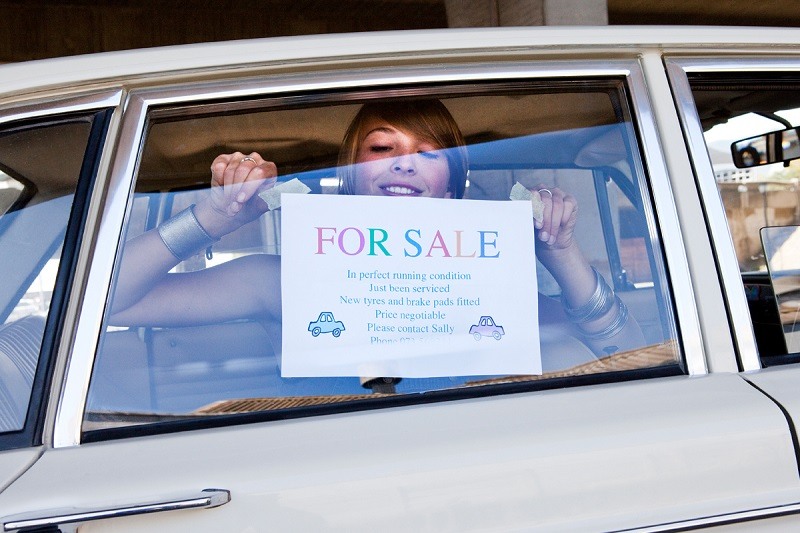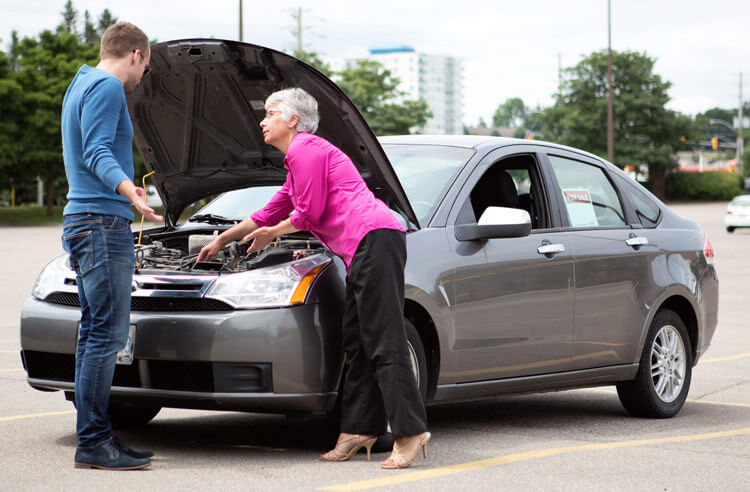Those who need to sell their old vehicle often do so privately in the hope of getting a better price, rather than at the dealer of the new vehicle. But in no other area is it so common to get to a dubious dealer and fall victim to a scam as when buying or selling a used car.
But to protect yourself from fraud when selling your used car, you should know the main traps and scams.
First, some good advice…
Contact only a trustworthy dealer and buyer of used cars to avoid any nasty surprises. A reputable dealer will also never build sales pressure or conduct the transaction without transparency. He will explain what the car is worth and usually back this up with the so-called database list (an extensive collection of data that determines the value of used cars).
Under no circumstances should you fall for high purchase offers without a prior inspection of the vehicle by the seller. If the bid is too high, you should immediately become suspicious, as it may be possible that a scam has been perpetrated or that the seller is trying to drastically reduce the price.
In addition, a transfer to a so-called secure escrow account should never be accepted. Then the danger is great that the car is gone, but the seller never gets his money.
An overview of the most important scams and traps.

HIGH PURCHASE PRICE OFFERED OVER THE PHONE
The private car seller receives a supposedly very good purchase price offer by a commercial car dealer. In order to receive the purchase price, the seller must drive to the dealer with the vehicle, often involving a long journey. On site, however, the seller delays the purchase and pushes a detailed vehicle inspection. During this inspection, a supposed expert then identifies allegedly existing defects that significantly depress the previously good purchase price. Many sellers then give up unnerved by the long journey and agree to the much lower purchase price. The fraudster thus makes a good deal. The high first mentioned purchase price was only a lure.
FRAUD WITH LATE RE-REGISTRATION
The buyer “forgets” to re-register the car quickly after the sale. As a result, the car continues to run in the name of the seller and can be used, for example, for insurance fraud, fictitious accidents and at the expense of the previous owner and seller.
Legally, the seller has the risk to continue to be liable for all costs in this connection. For example, as a seller, one continues to be liable for the payment of the insurance premium and for the vehicle tax towards the tax office if the buyer fails to re-register the vehicle in time.
ALSO FRAUD BY THE SO-CALLED CARD DEALERS
Everyone knows that in the morning you find a colorful card on your car with a phone number and an offer to buy the car by all means. When you call, you often get a non-binding promise of an attractive purchase price, which then allegedly no longer applies when the sale is processed because the dealer suddenly discovers defects in the vehicle that would reduce the purchase price.
Sometimes fictitious items and alleged expert costs are also deducted from this promised purchase price, so that the sum actually offered is ultimately much lower.
If then still another emotional pressure situation is built up or the salesman must sell the car in any case fast, many salesmen agree unfortunately to the offer of the unserious dealer.
Another variant of fraud by this type of dealer is fraud with the help of an expensive callback number. Then the “dealer” is not at all interested in buying the car, but in getting the interested seller to call the expensive toll number and be kept on hold as long as possible. A reputable dealer will always offer a customer-friendly, often even toll-free phone number or otherwise offer to call back at his own expense.

REAL FRAUD THROUGH BAD CHECKS
The private seller receives a purchase offer from an alleged buyer who comes from abroad and wants to pay the demanded purchase price immediately without negotiation. In return, he sends a check.
However, the seller now receives a check for a sum that is much too high (often it is claimed that the check was issued incorrectly by mistake and that there is no second one available) and is supposed to pay the difference in cash to the buyer’s collector when he picks up the car.
As a rule, however, the check bounces after a certain time and the seller has neither the purchase price nor the higher difference, which he paid out in cash to the collector. Another variant of check fraud is that the purchase price stated by the private seller is accepted immediately without negotiations and objections and then paid by check. This of course also bounces, the address given was wrong.
Source - https://www.waautoparts.com.au/dangers-and-fraud-in-the-sale-of-used-cars/
No comments:
Post a Comment